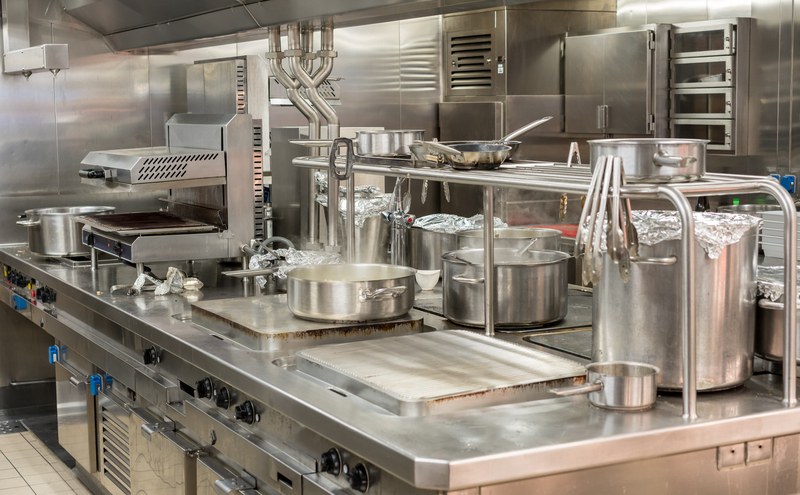Kitchens are bustling places where the creativity, teamwork, and business of every restaurant begins. Maintaining the cleanliness of this space is for more than just aesthetic reasons. As the hub of both food and staff, kitchens are full of opportunities for fires and foodborne pathogens like bacteria to thrive. Left unchecked, this can make staff and patrons sick as bacteria is spread around the entire restaurant. Here are some tips to help you pass those AHS inspections, as well as keep all your guests safe from the time they are seated to the time they pay the cheque.
Stainless Steel Equipment
Most commercial kitchen equipment is made from stainless steel. This makes it relatively easy to clean, as well as some grades of stainless steel are bacteria resistant. Simply use a wet cloth and a mild detergent, wiping in the direction of the finish. Baking soda or cream-based cleaner can be used on areas where there is a build-up of grease.
Oven Cleaning
Grime builds up on commercial ovens all day, this makes cleaning a little more physical than some people would prefer. Unfortunately, it is a task that must be done. Waiting until the appliance is smoking is a sure way to ensure all that baked-in and burnt debris will be very difficult to get off. Make it easier by cleaning the oven more regularly and using the right tools. If possible, leave the cleaning product on the oven overnight to let it work on the grime.
Exhaust & Grease Traps
Kitchen exhaust and grease traps should be attended to regularly so that the risk of fire or a sewer line blockage is greatly decreased. It also reduces maintenance costs and conserves water. Trimming up those expenses now can make a huge difference in the long run.
Flooring
Food often falls on the floor during preparation, staff track their shoes from the dining area, into the kitchen, and into walk-in freezers and prep areas. If not cleaned, cross-contamination becomes a real hazard. Dropped food can release germs into the air that may affect the quality of food on the counters. Mopping is not always sufficient, and a dedicated floor cleaning system or professional cleaning team may be required to get the job done.
Implement a Schedule
Cleaning is not effective if it is not done regularly. Implement a consistent schedule with your staff for daily, weekly, and monthly tasks. Each person needs to be aware of the standards to which your kitchen areas should be held to. In some cases, it is not realistic to expect your staff to perform their other duties as well as deep cleans. This is when you should call in a professional cleaner.
By keeping these areas top of mind, you are well on your way to maintaining a healthy, clean, and sanitary commercial kitchen! If you are looking for a team to help you manage this, contact the experts at Zanjani Cleaning. We can work around your unique schedule to achieve a sparkling kitchen!



Social Networks